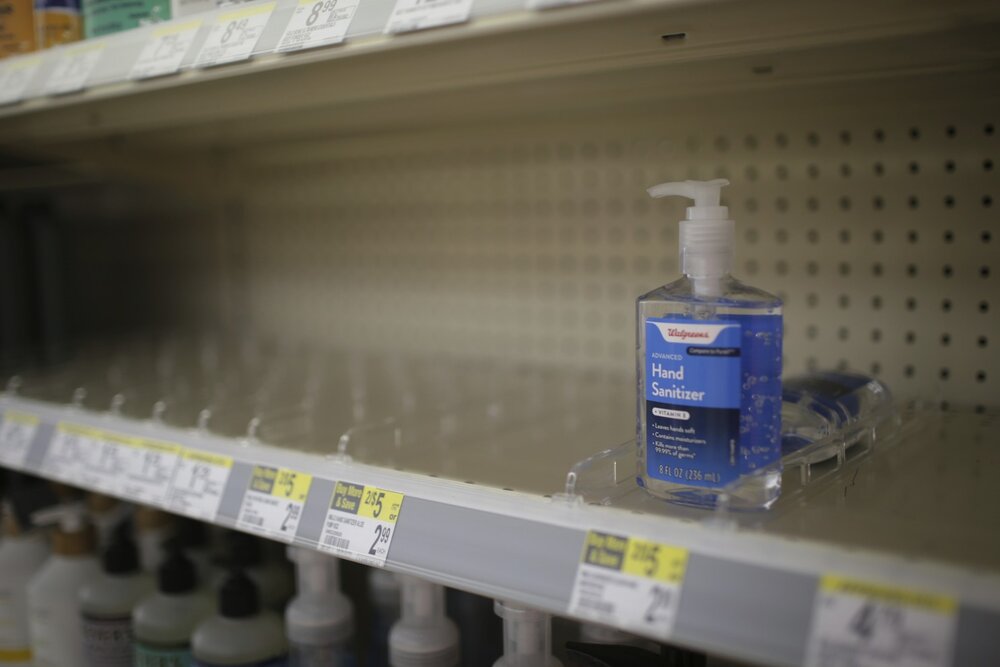COVID-19 crisis: washing hands for 20 seconds, not wasting water for 20 seconds

TEHRAN – These days, it is strictly recommended to wash our hands for 20 seconds as a great step to help prevent the spread of the coronavirus, but unfortunately many leave the tap running at the same time. This issue poses the greatest threat to the environment.
Worldwide, coronavirus has so far infected more than 1.2 million people and killed at least 66,000. In Iran, deaths surged to 3,603, with over 58,226 infections till Sunday.
The global outbreak of coronavirus pandemic has also triggered the demand for detergents, face masks, disposable gloves, which are negligently tossed on the streets after being used.
That means more and more waste ends up in landfills, bringing the environment a huge burden.
Regardless of the dire threats, hazardous waste can cause both for the environment and people, excessive water consumption today can become the biggest threat to the environment and natural resources.
Water consumption rises as coronavirus spreads
Alireza Tabatabaei, director of water operation supervision of Water and Wastewater Company, said: "According to the assessment made last week, water consumption increased in the metropolitan areas of Tehran by 26 percent, Esfahan 25 percent, Shiraz 22 percent, Tabriz 23 percent and Mashhad seven percent, compared to the same period last year.
Last week, 212 million cubic meters of water was consumed, compared to 189 million cubic meters in the same period last year, he lamented.
Explaining that nearly all of the provinces face serious water shortages, distinguished environmentalist Mohammad Darvish clarified that the entry of detergents and disinfectants into water sources and the release of plastic materials such as masks and gloves in nature adds insult to the injury.
Emphasizing the need for regular hand washing to prevent the infection, he noted that these days it is recommended to wash your hands with soap and water for 20 seconds, but not to waste water for 20 seconds.
He went on to say that a glass of water is enough to wash the hands properly, emphasizing on the multiplication of water consumption following the outbreak of the coronavirus.
Waste management must be a priority
Darvish went on to say that lack of proper waste management has caused leachate to enter water reservoirs and cause the qualitative decline of surface and groundwater resources.
Credits spent on dam construction should be allocated to waste management, because the water contamination is serious, highlighting that masks, gloves, and plastic bags should be packed separately and labeled “sanitary waste”.
Municipalities should also use separate vehicles for hazardous waste so that it is possible to recycle dry waste and produce compost from wet waste, he recommended.
He also explained that waste is a national asset that we should not easily lose; these days, as the use of detergents increases, we can use environmentally friendly detergents, adding, of course, the manufacturers of these detergents need government support.
Detergents can be harmful
Until recently, it was widely believed that antiseptics do not cause any harm, and do not affect human health or the environment. However, after conducting numerous studies and tests, some of their risks which can be caused by the excessive use of household antiseptics have emerged.
Moreover, a recent American study has revealed a major surprise that might make using antiseptics a real public health hazard. The study revealed that they help to create advanced types of germs and bacteria that are difficult to eradicate, according to the Biblex website.
Excessive consumption of detergents is a risk factor for the environment in addition to water and soil resources; wastewater from these substances enters our life cycle and can come up with a health hazard, Mohammad Khaleqi, head of Bojnourd department of environment told IRNA in March.
Soil erosion, a serious environmental challenge
Considering soil erosion to be the most important environmental challenge in the country, Darvish said that unfortunately, deforestation has increased the rate of flood and soil erosion.
Some 2 billion tons of soil is eroded annually in the country while producing a centimeter of rich soil lasts for 800 years, he lamented.
Referring to Iran's soil erosion rates being above the global average, he stated that the destruction of forests and soil erosion endangers biodiversity, especially the Hyrcanian forest species such as beech, hornbeam, chestnut-leaved oak, and maple are highly endangered.
Air pollution kills 35,000 people annually
Elsewhere in his remarks, Darvish said that air pollution is another environmental challenge, which claims 35,000 lives per year and costs billions of dollars.
He called education the first and best serious step in protecting the environment, noting that if the next generation is to protect the environment, they must be raised environmental enthusiasts so that nature schools can play a significant role.
“NGOs can pass on environmental research findings to the public,” he suggested, concluding that universities also must care about the environment, and the media must produce and publish rich environmental content.
FB/MG
Leave a Comment